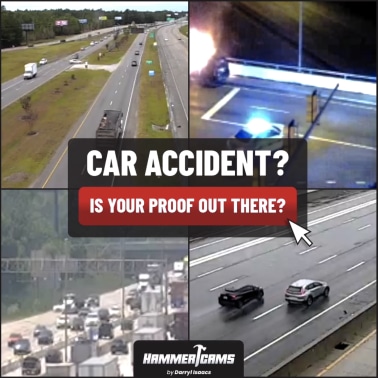What To Do After A Kentucky Car Crash
If you suffered car accident injuries, the following moments could be stressful and confusing. In some instances, you may first blame yourself because you don’t know the entire circumstances. Despite this, you should try to remain calm and take in the details of your surroundings. These moments could prove vital if you have to file a personal injury lawsuit later on.
You may have to pay for medical bills, lost wages, and in most cases, the cost of repairing or replacing your vehicle. Specific actions should be taken immediately following a Kentucky car accident to place yourself in a better position to file a personal injury lawsuit and receive insurance compensation.
Comparative Negligence in Kentucky Car Accident Cases
The law of comparative negligence applies to cases involving motor vehicle accidents. Under this rule, the jury must determine the total damages caused by your accident and apportion those damages among the parties involved. A plaintiff can collect damages for injuries sustained in a Kentucky car crash regardless of whether the driver was intoxicated.
However, if the plaintiff is partly responsible for causing the accident, she cannot collect damages beyond what she would have collected had there been no negligence on her part.
This rule does not apply to cases where one driver is negligent, and the other is not. For example, if a drunk driver hits a pedestrian while driving home from work, the pedestrian can sue the drunk driver for damages resulting from the collision.
In some states, such as California, the law requires that both parties be equally negligent for either party to be held liable for damages. In other states, such as Kentucky, the law allows plaintiffs to recover damages even if the defendant is more negligent than the plaintiff.
If you are injured in a car accident due to someone else’s negligence, you should immediately contact an experienced personal injury lawyer. An attorney can help you understand your options and protect your interests.
Car Insurance Laws and Requirements in Kentucky
Kentucky has several legal requirements relating to car accident injuries that differ from other states. Understanding these laws and how they might affect your claim is important.
Accident Report Requirement
Suppose you are engaged in a collision that results in a fatality, injury, or damage to a vehicle that leaves it inoperable. In that case, you must immediately contact a law enforcement officer with authority in the location where the incident happened, according to Kentucky Law, KRS 189.635.
If you are involved in a collision with no personal injuries and vehicle property damage to your car exceeds $500, you must file a written accident report with the Kentucky State Police within 10 days of the collision.
Even if your crash occurs in a parking lot, if you feel you or a passenger has been hurt, you should call the appropriate law enforcement agency as soon as possible so that they can complete a collision report. You can file a Civilian Traffic Collision Report with the state. After completing the form, make a duplicate for your records.
After submitting the report, you will not receive a response. The state will keep these records for up to three years and will provide you a copy if necessary. To receive compensation, you must document the accident, whether the police submit a report or you fill one out yourself.
Personal Injury Protection Benefits
According to the Kentucky Motor Vehicle Reparations Act, any person hurt due to an auto accident in Kentucky has the legal right to receive fundamental reparation benefits. Because of this rule, motorists must investigate their options for financial compensation through their insurance companies before filing a lawsuit.
Personal injury protection (PIP) coverage must be included in all automobile insurance policies purchased in the state. PIP benefits include compensation for medical expenditures, lost wages, and replacement services.
These benefits are known as “no-fault” since they are available even if the injured driver was at fault for the collision. However, you might not be able to register a claim for PIP if any of the following apply to you:
- You were performing your job duties when the incident occurred
- You choose not to purchase the PIP coverage
- You are the owner of the vehicle, which does not have insurance
If you have personal injury protection (PIP) coverage, you won’t be able to file a lawsuit following your accident. This is true unless your medical expenses exceed $1,000 or the crash results in permanent injuries, broken bones, or death.
You can opt-out of the PIP benefits system and reject these limitations by submitting specific documentation to the state insurance department. This will allow you to reject the limitations. However, before doing so, you should consider it because opting out also makes you susceptible to being sued.
You can increase the PIP payments you get from the statutory sum of $10,000 to $50,000, which will provide you with additional protection in case of a severe accident. This is typically doable at a manageable cost for your insurance policy.
Required Coverage
In the state of Kentucky, motorists are required to maintain active auto insurance coverage. Unless they are waived, the following categories of coverage are required to be included in insurance plans:
- Coverage for uninsured motorists
- PIP with a minimum of $10,000 and the ability to raise it
- $25,000 in compensation for each victim of bodily injury (minimal)
- $50,000 for all bodily injuries that result from an accident (minimal)
- $25,000 to cover any harm done to property
Your insurance provider may let you get more coverage if you ask. Get in touch with your insurance provider so that they can tell you how much coverage you have.
How To Protect Yourself After a Car Accident
It takes bravery to keep your head on straight and take decisive action to safeguard your financial future in the early wake of a car crash. Our law office offers our injured clients the support and dedication they need during this difficult time.
We can construct a claim on your behalf as your Kentucky automobile accident attorneys, and we will fight for the justice and maximum compensation you require to rebuild your life.
The following are steps to take following a car accident in Kentucky to safeguard your legal rights and increase the likelihood of being awarded maximum compensation for your losses.
Check for Injuries
Immediately following a collision, your priority should be to assist those who have been hurt. You must first regain your composure and then ascertain whether or not you have been hurt and, if so, to what extent.
After that, examine the condition of your passengers and the people inside the other vehicles to see if they have sustained injuries. If there are injuries or you are asked for assistance, dial 911 to get an ambulance dispatched.
If people are injured or killed due to the accident, you should not move the vehicles involved in the accident. Instead, switch on hazard lights and, if you have them, place cones or emergency flares at a location where they will be visible to pedestrians.
Contact the Police
If a motor vehicle collision in Kentucky results in bodily harm or death or renders your vehicle inoperable, you must report the incident to the authorities.
You are required to contact the Kentucky State Police if there is damage to vehicles or property that totals more than $500. It is recommended that the collision be looked into and a report be filed by a local law enforcement officer or a state trooper.
However, you should only provide police with factual information. Do not level charges against anyone, and do not accept responsibility for the accident.
If no law enforcement officers are present at the accident scene, each driver must send a written accident report to the Kentucky State Police. They should do this within 10 days of the incident using department-provided forms.
Be Prepared with Your Information
Have your vehicle’s insurance information and registration number available to the other drivers if they ask for it. Also, have the names and addresses of the vehicle’s owner, the driver, and any passengers in the vehicle ready to give out.
You are not required to ask for the information because the police will record it; however, if the other driver asks, you are obligated to supply it to them.
In your interactions with the other people involved in the accident, you should maintain a professional demeanor while being courteous. Do not get involved in a dispute, and avoid making allegations against anyone.
You could inform them that you have called the police and would prefer to wait for the police to deal with the crash.
See a Doctor, Even if You Have Minor Injuries
Getting medical attention has to be your top priority if you have sustained an injury. At the scene of the accident, you should work with the people providing emergency medical care. If they advise you that you should go to the hospital’s emergency room, you should allow them to transfer you there.
If you cannot go to the hospital immediately after the accident, make an appointment with a doctor within the next 12 to 24 hours. Some potentially fatal types of brain injuries may not produce symptoms right away.
If you decide to file a claim for compensation for the injuries you sustained in a car accident, the documentation of the medical care you received will be an essential component of your case. If you put off getting medical attention, an insurance company may argue that your injuries were brought on by something other than the collision.
After going to the doctor, you must adhere to the physician’s orders regarding your care and treatment, including attending all of your follow-up appointments. If you don’t, an insurance company can use that as evidence that your injuries weren’t as severe as you claimed.
Gather Information About the Accident Scene
Take pictures of the accident scene, whether the collision occurred at an intersection, on an interstate, on a city street, or a rural roadway. Capture standing water, obscured road signs, construction cones, or any road conditions that may have contributed to the accident.
Take pictures of the crash wreckage, such as shattered glass, sheared-off vehicle parts, and skid marks. Take photos of your wounds as well as those of others.
Make sure to get the witnesses’ full names and contact information on record, including those of your passengers. If possible, you should have them record a video of themselves providing their information, spelling out email addresses and unusual names.
When Reporting the Crash, Avoid Making a Statement to Your Insurance Carrier
Report the accident to your auto insurance provider by calling them on the first day after it occurs. You should be able to complete this task online by providing the essential information requested. You may be approached and asked to submit a statement; however, you should politely refuse this request.
It is easy to inadvertently undermine your claim by saying anything to an insurance company that you may have avoided. Be succinct and stick to the facts. Don’t place blame on anyone else or take it on yourself.
Do not minimize the severity of your injuries. Tell the insurance representative that you don’t feel comfortable discussing the topic.
Maintain Privacy Regarding Your Accident and Recovery
Calling your vehicle insurance company the day after an accident is the best way to notify them of the incident and comply with their reporting requirements. If you can provide all of the necessary information, you should be able to finish this task online.
Someone will likely approach you and ask you to provide a statement; however, you should courteously decline the request if it is made to you.
If you mention to an insurance company that you could have avoided the accident, you risk accidentally undermining your claim. This is an easy thing to do. Try to keep things brief and factual in the conversation you’re having.
Do not blame anyone else or take responsibility for the situation on your own. You mustn’t downplay the seriousness of your injuries. Kindly explain to the insurance company representative that you are unable to discuss this subject at this moment since it makes you feel uneasy.
Don’t Trust or Sign an Early Settlement Offer
After you have filed a claim with your insurance company for an automobile accident, the insurance company may make what appears to be a very substantial settlement offer. On the other hand, when serious injuries are involved, a speedy settlement offer will typically not reflect the specific costs and losses you have incurred.
Insurance companies frequently base settlements on the amounts paid out for claims that were comparable to yours and on what they believe you will consider reasonable.
After you have finished all your medical treatment, including rehabilitation, an accurate estimation of what a fair insurance settlement would be for you can be determined. Until then, any offer the insurer makes is an estimate that reflects the amount they hope you would accept so that they may end your claim.
Do not agree to a hasty settlement offer under any circumstances. Additionally, you should never sign anything that an insurance adjuster gives you without first talking with a personal injury attorney. You run the risk of taking away some of your legal protections.
Hire a Lawyer to Investigate Before Witness Memories Fade
After being in a car accident in Kentucky, the sooner you can get in touch with a car accident lawyer in the state, the better off you will be. We can move quickly to investigate your accident. We will contact the other motorist, their insurers, and any other parties that are required to demand that they retain any evidence that may be relevant to the case.
We can file a lawsuit and have it served on the other motorist if necessary. Even if the motorist who caused the accident cannot be found, the insurance company for that driver will still be held liable for the damages incurred by the collision.
If the driver who caused the accident moves and is difficult to locate, the insurance company for that driver may claim that they do not know who was at fault and that they cannot just take your word for it.
Insurers will always put their company’s financial line first, but our personal injury lawyers always work hard to protect our clients’ rights.
Also, look for your own counsel, and be suspicious of lawyers or medical professionals who approach you without being asked to do so.
Kentucky Car Accident Settlement Process
Following the submission of your claim, your insurance provider will initiate an investigation to determine who was at blame and the amount of damages you sustained. You may incur damages such as medical bills, lost pay, and the cost of repairing or replacing your vehicle.
After that, the insurance company will make an offer of settlement. You can file an appeal with the company if your claim is rejected or if you believe the amount offered is insufficient.
You should address your initial appeal to the claim supervisor at the insurance company. In addition, you can challenge the judgment further by registering a complaint with the insurance department, should that become required.
If neither of these two options results in a satisfactory settlement, you have the choice to file a lawsuit if the accident caused losses worth more than $1,000, resulted in personal harm or death, or both.
Even if you do file a lawsuit, your case can be resolved by a settlement in the end. Both parties frequently prefer to settle a dispute rather than run the danger of the time and expense associated with going to court.
Consequently, settlement conversations take place continuously throughout the duration of a case.











